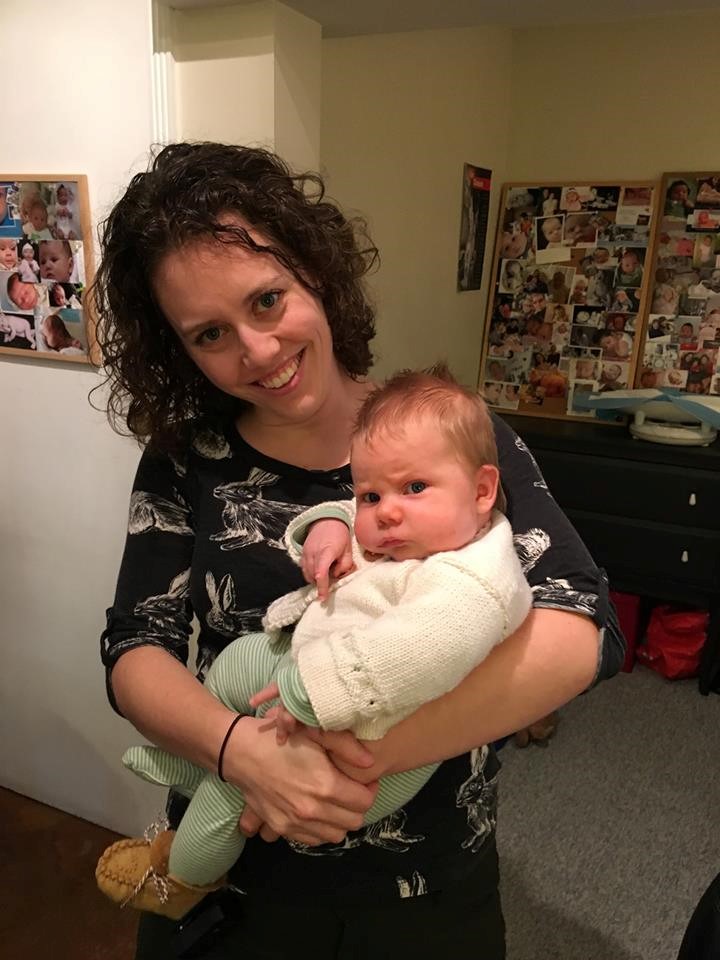CANVax Webinars
Our webinar series explores current and emerging topics in immunization from vaccine safety to strategies and initiatives to improve vaccine acceptance and uptake.
This series is primarily intended for public health professionals working in various levels of immunization, including the planning, development, implementation and promotion of immunization programs.
Registration
Register for upcoming webinars on this page. See below for the registration link in each session’s description. Webinars are live, recorded, include a moderated Q&A, and are available in English. Stay tuned for upcoming webinars!
Recordings
Webinar recordings are posted on this page and on CPHA’s YouTube page.
Upcoming Webinars
Stay tuned for upcoming webinars!
Past Webinars
CANVax Webinar: Building on Success: Leveraging Pandemic Learnings into Lifelong Vaccination Practices
Date: Tuesday, August 29, 2023
Time: 53 minutes
CANImmunize is a digital health company specialized in vaccination tracking and promotion. CANImmunize has been focused on immunization technology since 2012, when our team developed the CANImmunize app, which has been used by hundreds of thousands of Canadians to track their families’ vaccination records. In December 2020, we partnered with the province of Nova Scotia to lead their COVID-19 vaccine roll-out, beginning with implementation in long-term care facilities, and expanding to meet the ever-changing needs of the pandemic response. Through this collaborative partnership, we developed ClinicFlow, an end-to-end immunization clinic management platform. Building on the lessons learned during the COVID-19 pandemic, we expanded the platform to other vaccines, starting with influenza and Mpox vaccines, and ultimately to supporting lifespan vaccines across the province.
This webinar will describe the ways in which an agile, partnership-driven response to the COVID-19 pandemic led to a successful vaccine roll-out and how this approach can be used to address the need for high-quality, robust vaccine tracking and management solutions in the post-COVID-19 era. It will also outline how real-time data and patient engagement can be used to empower patients, combat disinformation about vaccine safety, and support evidence-based healthcare decisions. Finally, we will present how CANImmunize will continue to apply these lessons to streamline immunization clinics and help patients make informed vaccine decisions as the vaccine landscape continues to evolve and more vaccines come to market.
Speaker: Kathryn MacDonald, Director of Product, CANImmunize
Slides Available
Watch on YouTube
CANVax Webinar: Building Vaccine Confidence and Demand in a Digital Age
Date: Tuesday, July 18, 2023
Time: 55 minutes
This webinar will provide an overview of the ‘Building Vaccine Confidence and Demand’ course.
This eLearning course is an introductory series of self-directed learning modules that explores the basics of WHO infodemic management competencies and vaccine programming. This course is targeted at immunization providers, educators, and program planners (IPEPP) to help advance and adapt vaccine programming post-pandemic and utilize infodemic management skills in order to deliver safe, trusted, and effective programming. All public health professionals are welcome to complete this course.
Speaker: Renate E. Mares, Adaptation and Public Health Consultant
CANVax Webinar: Moral Injury and Public Health - Focus on Immunizers
Date: Wednesday, June 28, 2023
Time: 60 minutes
This webinar will address the following objectives:
- Identify differences in aspirations between public health and acute care medicine
- Define moral injury and why public health practitioners, including immunizers are at risk
- Outline the impact of moral injury and the steps needed to address moral injury
Speakers:
- Dr. Noni E. MacDonald, Professor Emerita, Dalhousie University, IWK Health Centre
- Dr. Rosemary Ricciardelli, Professor and Research Chair in Safety, Security, and Wellness, Memorial University
- Dr. Jeannette Comeau, Assistant Professor, Dalhousie University and Medical Director/Lead, IWK Health Centre
Slides Available
CANVax Webinar: Peer-to-Peer Vaccine Education & Outreach Program
Date: Wednesday, February 15, 2023
Time: 57 minutes
A first language paid peer-to-peer vaccine outreach, education and promotion program is needed for newcomers to ameliorate vaccine hesitancy among immigrants, refugees and other new Canadians. Without the cultural safety created by a deep understanding or respect for the cultural norms and practices of newcomer groups, trust between healthcare professionals and newcomer groups cannot be created. Engendering trust, confidence and acceptance requires innovative approaches.
During this webinar, presenters will discuss:
- Needs and barriers of newcomers regarding vaccine hesitancy
- Experiences of Arabic, Spanish, Mandarin & French Internationally Educational Health Professionals (IEHPs) as they take on the role of vaccine ambassadors
- Best Practice Guidelines & Recommendations
- Survey results assessing confidence in knowledge, beliefs and attitudes, medical mistrust and future intention and uptake of COVID-19 vaccines
- Community Outreach Efforts
Speakers:
- Ali Ahmed, Curriculum Development and Research Manager of the Peer-to-Peer Vaccine Education and Outreach Program
- Daniela Gotera, Spanish Vaccine Ambassador
- Johanna Ravelo, Registered Nurse, LaSalle Hospital, French Vaccine Ambassador
-
Mansour Elshami, Arabic Vaccine Ambassador
-
Mzin Idris, Health Education Outreach Worker
-
Lina Wang, Mandarin Vaccine Ambassador
Slides Available
Watch on YouTube
Research into action: How immunization research influences public health policy decisions in Canada
This webinar is collaboration and presented by The Canadian Association for Immunization Research, Evaluation & Education (CAIRE)
Date: Tuesday, May 24, 2022
Time: 62 minutes
This webinar will cover the following:
- How immunization policy decisions are made in Canada
- The effective knowledge translation strategies researchers can use to inform immunization policy decisions in Canada
In the first part of this webinar, Dr. Fell will provide a brief overview of the purpose of the National Advisory Committee on Immunization (NACI) and a framework for guiding immunization policy-making and recommendations at the national level in Canada. In the second part of the webinar, Dr. Frank will delve further into how researchers are under increasing pressure to demonstrate that their work will influence decision-makers in healthcare and public health. This is a process described as “Moving Research to Action".
Speakers:
- Dr. Deshayne Fell, Associate Professor, University of Ottawa, and Scientist, Children's Hospital of Eastern Ontario Research Institute
- Dr. John Frank, Professor Emeritus, University of Edinburgh; University of Toronto
Moderator:
- Dr. Manish Sadarangani, Director of the Vaccine Evaluation Center, BC Children’s Hospital Research Institute
Slides Available
Watch on YouTube
How to use motivational interviewing in conversations with patients who are vaccine hesitant
Date: Thursday, March 10, 2022
Time: 57 minutes
At the end of the presentation, participants will be able to:
- Understand the principles of motivational interviewing
- Understand how to integrate motivational interviewing into their daily practice and in their conversations with patients who are vaccine hesitant.
Presenter:
- Dr. Arnaud Gagneur, MD, PhD, University of Sherbrooke, CIUSSS de l'Estrie - CHUS Research Centre
Slides Available
Watch on YouTube
Midwives and Vaccinations: Delivering Informed Choice Discussions
Date: Thursday, February 11, 2021
Duration: 57 minutes
Description:
Registered and Indigenous Midwives in Canada are primary care providers for pregnancy, birth, (approximately 6-8 weeks postpartum) and newborns integrated in the Canadian health care system. While midwifery training and competencies are parallel to those for physicians, the Canadian midwifery model focuses on the continuity of the carer, informed choice, choice of birthplace, and evidenced-based practice while seeking to protect normal pregnancy, birth, breastfeeding, and newborns. Current midwifery education, scope of practice and practice norms regarding immunization vary widely across the country. The Canadian Association of Midwives (CAM) and the National Aboriginal Council of Midwives (NACM) recently assessed current midwifery practice, and the perspectives and informational needs of midwifery clients around immunization.
This presentation will describe the challenges and opportunities about what discussing vaccination through a midwifery informed choice lens presents and the role of midwives in immunization decision-making and service delivery. In addition, it will share some of CAM/NACM’s assessment findings and the informational materials produced in response.
Presenters:
- Jasmine Chatelain, Registered Midwife - Canadian Association of Midwives (CAM)
- Fallon Cooper, Registered Midwife - Canadian Association of Midwives (CAM)
Slides Available
Watch on YouTube
Immunization in special populations: Are you really “up to date”?
Date: Tuesday, June 23, 2020
Duration: 58 minutes
Description:
Vaccine preventable infections continue to cause diseases across the world. Various special populations are at increased risk of complications from these vaccine-preventable diseases. There are vaccination strategies and programs that are in place for these groups. However, many people who are considered immunocompromised or more susceptible to disease remain undervaccinated.
Health care providers caring for these patients may ask themselves:
- Which vaccines are recommended specifically for my patient?
- How should I vaccinate my patients?
- When should I be vaccinating these patients?
- Who should be vaccinating these patients?
- How can I find resources or guidance to help me optimize immunization?
After this session, attendees will be able to:
- Describe general principles of immunization in immunocompromised or high-risk patients
- Distinguish between low-level and high-level immunosuppression.
- Understand how to optimize vaccination in special populations and/or immunocompromised patients
Presenter:
- Dr. Anne Pham-Huy - University of Ottawa, CHEO and Immunize Canada
Slides Available
Watch on YouTube
Introducing the CARD™ system: Playing your best hand to improve vaccine delivery at school
Date: Tuesday, May 19, 2020
Duration: 57 minutes
This presentation will review:
- The rationale for trying to optimize the vaccination delivery process at school
- A new vaccination delivery framework (the CARD™ system) that integrates evidence-based strategies to reduce student pain, fear and fainting during school vaccinations
- Factors that can affect implementation success.
Presenter:
-
Dr. Anna Taddio, PhD - University of Toronto
Slides Available
Watch on YouTube
Vaccinating Pregnant Women: Knowledge, Beliefs, Attitudes and Practices of Women’s Healthcare Providers
Date: Thursday, April 23, 2020
Duration: 36 minutes
Description:
Vaccination during pregnancy offers a safe option that improves outcomes for mothers and babies. By understanding the factors that influence practices of women’s healthcare providers, improvements to antenatal care can be recommended. These changes can have a long-term impact on maternal and fetal morbidity and mortality related to vaccine-preventable illnesses.
Presenter:
-
Dr. Courtney R. Green, PhD, MSc - Society of Obstetricians and Gynaecologists of Canada (SOGC)
Slides Available
Watch on YouTube
Increasing immunization coverage by strengthening the decision-making process of parents through motivational interviewing intervention in maternity wards: The EMMIE program
Date: Thursday, February 20, 2020
Duration: 57 minutes
Description:
To date, many parents are concerned about accepting vaccines for their children and trying to convince them by simply providing the facts may backfire and make them even more hesitant. In this context how can health care workers overcome the challenge of meeting parental decision-making needs regarding vaccination of their children? The PromoVac strategy consists of an immunization education session given to parents in maternity wards using motivational interviewing techniques. The MI-approach aims to give information to parents, according to their specific needs and their individual level of knowledge with respectful acceptance of their own beliefs. The Promovac strategy has proven its effectiveness in Canada through numerous studies including multicenter randomized controlled trials and it is also effective as a new practice of care in maternity wards across the Province of Quebec through a governmental program (EMMIE program) since 2018. This webinar will present the main results of the PromoVac studies and the evaluation of the implementation of this strategy as a new public health program in Quebec.
Presenter:
- Dr. Arnaud Gagneur - University of Sherbrooke, CHUS Research Centre
Slides Available
Watch on YouTube
Managing patients with adverse events following immunization
Date: Tuesday, February 11, 2020
Duration: 62 minutes
Description:
Patients or clients with adverse events following immunization (AEFIs) may be encountered in clinical and public health practice, and providers may be uncertain as to the best approach to their management. This webinar will discuss common and complex scenarios of AEFIs, discuss approaches to management, and describe resources available to clinicians and public health units through the Special Immunization Clinic Network.
Presenter:
- Dr. Karina Top, MD, MS, FRCPC - Dalhousie University, Canadian Center for Vaccinology
Slides Available
Anaphylaxis versus Immunization Stress-Related Response Slide
Watch on YouTube
Intensive Mothering and Vaccine Hesitancy in the Web 2.0 Era
Date: Tuesday, January 14, 2020
Duration: 49 minutes
Description:
In Canada, vaccination is not mandatory, and it is estimated that nearly one-third of parents are vaccine-hesitant. Vaccine-hesitant parents may choose to refuse vaccines for their children, to delay vaccination, or to follow the recommendations of health authorities despite significant fears and concerns. Some authors attributed vaccine hesitancy to the proliferation of negative information about vaccines on the Internet. Other studies indicated that vaccine-hesitant parents adhere to a specific parental approach, such as intensive mothering. In North America, many normative views co-exist, most of them put children’s needs as the priority. In this context, it is important to understand how the Internet participates in shaping maternity knowledge and the role of the Internet regarding health decision for their child’s vaccination. This presentation is based on the findings of an online ethnography conducted in 2015. Non-participant and participant observations on three online social media groups for mothers, 19 individual interviews with mothers, and media monitoring on the topic of vaccines were conducted. The results highlight different types of vaccine hesitancy and the informational context of mothers and the tensions between health authority norms (such as the vaccine norm) and healthism ideology norms (such as questioning expert knowledge).
Presenter:
- Dr, Maryline Vivion, PhD - Quebec National Institute of Public Health (INSPQ)
Slides Available
Watch on YouTube
Vaccine-Injury Compensation: A Complex Conversation
Date: Thursday, November 14, 2019
Duration: 34 minutes
Description:
In Canada, only the province of Quebec has a vaccine-injury compensation program. This CANVax webinar will provide participants with an overview of the dialogue on vaccine-injury compensation (VIC), the rationale for these policies, and how they function. The speaker will further describe the context and current status of VIC policies/programs in Canada, based on specific recent events, reviews of the literature, and other related conversations via social media and advocacy groups. The session will conclude with a conversation on gaps in knowledge and important next steps for Canada’s immunization strategies and planning.
Presenter:
- Sandani Hapuhennedige, BSc., BA., MPH (on behalf of Simcoe Muskoka District Health Unit)
Watch on YouTube
Living better longer: The importance of influenza vaccine
Date: Thursday, October 10, 2019
Duration: 54 minutes
Description:
“Living better longer: The importance of influenza vaccine” explores the data supporting the use of influenza vaccines in older adults, with a focus on special considerations for this population. This webinar reviews the burden of influenza in older Canadian adults, discusses the importance of understanding the relationship between frailty and influenza, reviews the Canadian data supporting the effectiveness of standard-dose TIV for the prevention of serious outcomes in older adults, and reviews data supporting the use of high-dose influenza vaccine in older adults.
Presenter:
- Dr. Shelly McNeil - Canadian Center for Vaccinology, Dalhousie University






_1.png)
_0.png)











